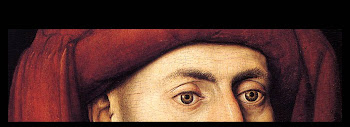
I am sick and tired of hearing partners and associates alike bemoaning the difficulties, unfairness and over-all messiness of law firm "politics". Many otherwise highly intelligent, well-read and forthright professionals start sounding like 7-year-old boys (I ought to know, I have two of the creatures at home) when they start gabbing about machinations in their respective offices--and usually it all starts sounding like an elaborate and just plain wishy-washy excuse for mediocrity. "But 'she' got made a partner just by kissing up to the big partners!" and again "But 'he' got onto the managing committee and froze me out of that great new project!" Please. Stop your snivelling.
I hasten to add that I am not necessarily advocating adding an extra helping of chest-thumping testosterone to ease your next meeting. Neither do I immediately suggest an oily, clandestine, Machiavellian maneuvering afterwards. On the other hand, either might be perfectly legitimate and necessary tactics, depending. Rather, I advocate a more reasoned and better-conceptualized approach to what "politics" actually is, and how grasping the concept of the true spirit of politics can lead to vastly increased influence (read: power, read: success, read: satisfaction, read: meeting your goals however you define them).
Okay. I won't go all the way back to Socrates and Augustine, and I don't have to. Twentieth Century philosopher (or, as she preferred, "political theorist") Hannah Arendt did it for me. Arendt, a German Jew (in her 40's during the Holocaust) and a brilliantly creative and insightful thinker, had alot to say about the virtues of politics. (Need I connect the dots that if, given her background, Arendt found an upside to politics, then you, friend, can find a silver lining in your current law firm morass!)
At any rate, Arendt wrote extensively on the nature of politics, authority and, yes, totalitarianism. She was one of the first to theorize that both the extremes of Fascism and Communism were two outgrowths of a single, evil root. As one might expect (or at least hope), Arendt was a champion of freedom.
Very importantly, Arendt discussed freedom in terms of political action among individuals. In other words, freedom was to be experienced, shared and, in essence, defined by actions of individuals within a social milieu. This hearkens, of course, to the Greek polis, the American township, and the Paris commune.
Moreover, Arendt did not shy away from the fact that such activities presuppose and require the creation of instruments of power (social structures that have the capacity to compel) and establishment of avenues of authority to wield such tools. Quite beautifully, Arendt advocates and describes "natality", which she defines as the human ability to bring new ideas, new institutions, and new frameworks out out of nothing and into reality.
I think that with very little extrapolation one can see that politics, properly framed, can be seen as nothing more than the technology (or set of technologies) for influencing, organizing, inspiring and working together as a free individual in association with other free individuals--albeit individuals each of differing amounts of power and influence, all vying to some extent to increase their own.
Of course, morality enters here. Rightly, I think, while Arendt see "freedom" as a social construct, she sees "morality" as a personal dialogue--an inner Socratic method if you will. For her, morality and conscience are those mechanisms by which we communicate to ourselves which activities and attitudes we can maintain and still be "friends" with ourselves. If you take the time to think about that for at least half the time it take you to scan this article, it is a startling and fecund thought.
This brings us back rather neatly to your law firm practice. Arendt shows us that we are and must be independent actors in a social milieu. This means, quite emphatically, that we are INVOLVED in the process. That means meeting others, attempting to influence others, organizing teams, excluding, including, chastising, praising--in short, politics as a wholesome and beautiful virtue.
As a posthumous thanks for these insight, I am pleased to say, dear Hannah had a number of items named after her, not the least of which is, one such item, not quite a star, but a shining and relatively free relative of the same, asteroid 100027 Hannaharendt.
Enjoy your day.
This work is licensed under a
Creative Commons Attribution-Noncommercial-No Derivative Works 3.0 United States License.
